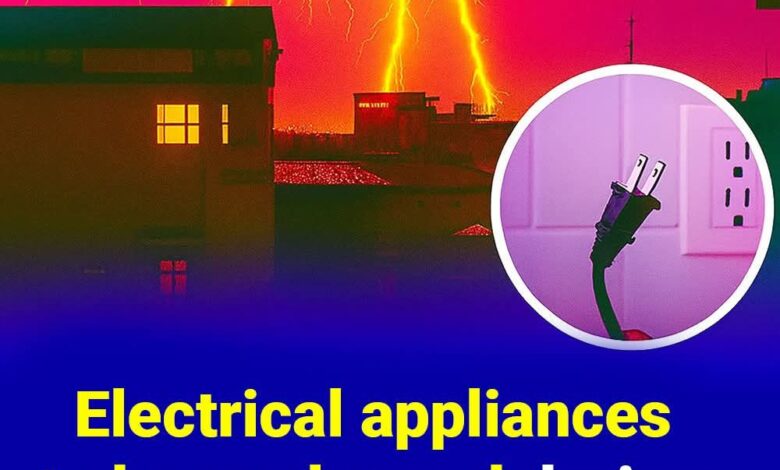Essential Home Safety: The Critical Device You Must Disconnect During Every Storm

When thunder rumbles and lightning illuminates the sky, most homeowners focus on staying indoors. However, experienced electricians and home insurance experts emphasize one crucial safety measure that many overlook: disconnecting specific electrical devices before severe weather strikes.
Why Storm-Related Power Surges Pose Serious Risks
Modern homes feature advanced electrical systems with circuit breakers and surge protection devices, yet these safety measures cannot guarantee complete protection against lightning-induced power surges. Insurance claims data reveals that electrical damage from storms costs homeowners thousands of dollars annually.
Lightning strikes can affect your home’s electrical system in multiple ways:
- Direct strikes to buildings or nearby structures
- Electrical surges through power lines from distant lightning
- Voltage spikes transmitted through cable and phone lines
Home insurance companies report that storm-related electrical damage claims include destroyed televisions, damaged refrigerators, and completely fried computer systems—all preventable with proper precautions.
High-Priority Electronics to Disconnect Before Storms
Smart homeowners develop a pre-storm routine that includes disconnecting these vulnerable devices:
Entertainment Systems (highest priority): Large-screen TVs, sound systems, gaming consoles, and streaming devices represent significant investments and are extremely susceptible to power surges.
Computing Equipment: Desktop computers, laptops, tablets, and phone chargers contain sensitive circuitry that rarely survives electrical surges.
Kitchen Appliances: Ovens, microwaves, induction cooktops, and smart refrigerators with digital displays are particularly vulnerable.
Laundry Equipment: Washing machines, dryers, and dishwashers with electronic controls face high replacement costs after surge damage.
Small Electronics: Coffee makers, electric kettles, and electric water heaters should be unplugged during severe weather.
Professional Electrical Safety Recommendations
Certified electricians recommend establishing a storm preparation checklist that includes:
Pre-Storm Inspection: Regularly examine your home’s electrical system for outdated wiring or damaged outlets, which significantly increase storm-related risks.
Flood Zone Considerations: Homes in flood-prone areas should have main power shutoff procedures, as water and electricity create extremely dangerous conditions.
Vacation Preparation: When leaving home before predicted storms, disconnect all non-essential electrical devices to prevent damage while away.
Advanced Protection Systems Worth Considering
While disconnecting appliances remains the most reliable protection method, additional safety equipment can provide enhanced security:
Whole-House Surge Protectors: These devices install at your main electrical panel and provide comprehensive protection for all connected electronics.
Lightning Protection Systems: Professional lightning rod installations offer additional safety for homes in areas with frequent thunderstorms.
Smart Home Integration: Modern smart home systems can automatically disconnect devices when severe weather alerts are issued.
Insurance and Financial Protection
Home insurance policies typically cover storm-related electrical damage, but prevention remains more cost-effective than replacement. Many insurance companies offer discounts for homes with comprehensive surge protection systems.
The few minutes spent disconnecting electronics before each storm can save thousands in replacement costs and prevent the inconvenience of losing important data stored on damaged devices.
Emergency Preparedness Best Practices
Develop a family storm safety plan that includes:
- Designated person responsible for disconnecting electronics
- Emergency contact information for electricians
- Documentation of valuable electronics for insurance purposes
- Backup power solutions for essential devices
Remember that storm safety extends beyond just protecting electronics—it’s about safeguarding your entire home and family from electrical hazards that can occur during severe weather events.